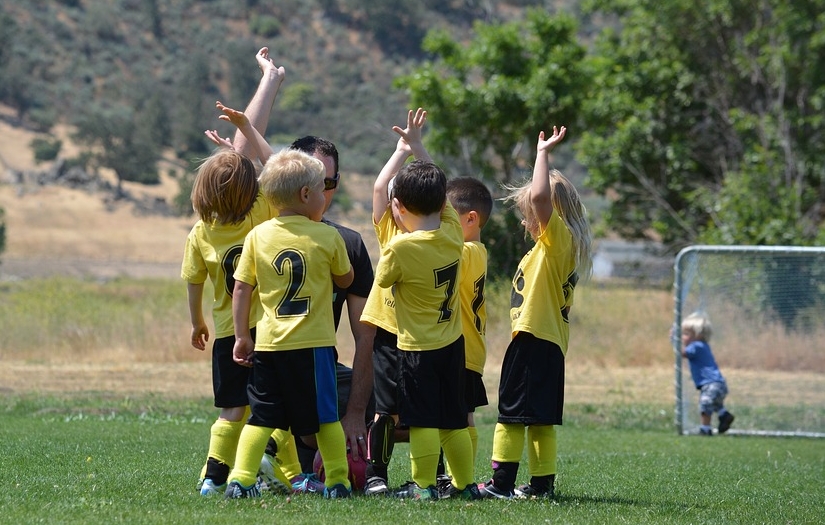....
Unsere Verschiedenheit kann uns öfters mal in schwierige Momente bringen. Es kann eine Pattsituation entstehen, wo man nicht mehr weiter weiss. Was gilt es sich in diesem Zusammenhang zu merken ? Das ist das Thema dieses Blogs.
..
Our differences can often cause difficulties. Sometimes we get ourselves into stalemate situations with no solutions in view. What is important to remember in such cases? That’s our subject in this blog.
....
....
Sollten Sie es nicht sowieso bereits getan haben, sind Sie herzlich eingeladen, zum besseren Verständnis Teil 1 , Teil 2 , Teil 3 , Teil 4 und Teil 5 zu lesen, die bereits vor einiger Zeit hier erschienen.
Werte Leserin, werter Leser. Die Blogs unter diesem Titel stammen von meinem Bruder, der in Gümligen (Schweiz) seine psychotherapeutische Praxis hat, wo er Ehepaaren und Familien praktisch umsetzbare Impulse gibt. Lassen Sie sich das nicht entgehen!
Der folgende etwas bearbeitete Artikel ist der Zeitschrift "Leben und Gesundheit" (LINK) entnommen, einer Zeitschrift, die ich selbst auch abonniert habe.
..
You are invited to also read Part1 , Part2 , Part3 , Part4 and Part5
Dear Reader, today’s blog is one in a little series of articles written by my brother, a practicing psychotherapist near Bern, Switzerland who helps couples and families enrich their lives with practical counsel. You won’t want to miss out!
The following is a condensed version of an article published in "Leben und Gesundheit" (Life and Health - LINK), a German magazine from Switzerland, which I subscribe to and recommend.
....
....
Wir sind nun mal verschieden
Beispiele
Franziska ist ein Beziehungsmensch. Sie würde am liebsten das ganze Wochenende mit Freunden verbringen, während ihr Mann Rolf ausgerechnet das vermeiden will, weil er die Ruhe und Einsamkeit liebt, ja braucht.
Da ist Selina, bei der nach der Geburt des ersten Kindes die Frage nach Gott als Schöpfer wichtig geworden ist. Ihr Partner Kurt aber kann mit Glauben gar nichts mehr anfangen, da er schlechte Erfahrungen damit gemacht hat.
Stefanie liebt Ordnung, ja braucht sie, damit sie sich wohl fühlen kann. Ihr Freund Sven hält nicht so viel davon, ja ärgert sich masslos, wenn er seine Zeitung nicht mehr am gleichen Ort findet, wo er sie hingeschmissen hat.
“Gegensätze ziehen sich an”
Sie kennen vielleicht diesen Spruch. Stimmt das wirklich? Meine Erfahrung zeigt, dass es weitgehend zutrifft. Die meisten Paare sind fasziniert, dass der Partner nicht die gleichen Stärken und Schwächen aufweist, sondern öfters auch dort stark ist, wo man seine Grenzen erkennen kann. Das macht total Sinn.
Aber es sind gerade diese Unterschiedlichkeiten, die manchmal zu Gegensätzlichkeiten werden, die zu Grundsatzdiskussionen führen können und Konflikte hervorbringen. In den früheren Blogs haben wir einige Tipps dazu gegeben, wie man Konfliktsituationen bereinigen kann.
Das Ziel ist es, trotz Unterschiedlichkeiten einen gangbaren Weg zu finden, bei dem die Beziehung nicht leiden soll, sondern sogar reifen kann.
..
We’re Just Different
Examples
Francisca is into relationships. Her favorite thing is to spend a whole weekend with friends, but her husband, Rolf, who loves (and needs) peace and quiet and being alone, avoids those social events whenever possible.
After giving birth to her first child, Selina started thinking seriously about God and His role as Creator. However, because of bad experiences in his past, her husband, Kurt, wants nothing to do with such thoughts.
Stephanie loves order. In fact, she needs it to feel good. Her boyfriend, Sven, doesn’t care much about it. He actually gets upset when he doesn’t find his newspaper where he left it.
“Opposites Attract”
You may have heard this saying. Is it true? In my experience, I have found it very often to be the case. Most couples are fascinated by the fact that the strengths and weaknesses of their partners are complementary to their own. It’s completely logical to be attracted to a person who is strong in an area where we recognize our limits.
However, it is these differences that often end up leading to differences of opinion, arguments and conflict. For some tips on how to handle conflict, please have a look at our previous blogs dealing with that subject.
The goal is to find a way to work through differences in a positive way so the relationship is not damaged, but is rather able to mature.
….
....
Anfangs merkt man die unangenehmen Unterschiede nicht so leicht. Aber je länger man sich kennt, desto klarer wird, wer zB immer Recht haben muss!!
..
In the beginning of a relationship, uncomfortable contrasts are not so easily detected. However, the longer a couple is together and the better they get to know each other, the more clearly these differences become. For example, they may notice who always has to be right!
....
....
Warum entstehen Pattsituationen?
Einerseits haben wir gerade erwähnt, dass unsere Verschiedenartigkeit dafür verantwortlich ist. Aber hinter dieser Unterschiedlichkeit liegt ein Grund, eine Motivation, die plötzlich wichtig werden kann. Wenn wir diese Motive nämlich kennen, können wir solche Situation viel besser meistern. Dafür braucht es aber die Willigkeit, etwas hinter die Tageskulisse zu schauen.
Solche Motive, Wünsche oder auch Träume können tief in der Persönlichkeit verankert sein.
Rolf sucht die Stille, weil er da wieder auftanken kann. Er ist ein HSP (BLOG) und würde mit zu viel Trubel und Heiterkeit überfordert sein, während Franziska als Sanguinikerin (BLOG) in der Gemeinschaft so richtig auflebt und darin ihre Bestätigung und Anerkennung findet.
Selina hat nach den vielen Streitigkeiten in ihrem Elternhaus endlich den Frieden gefunden, den Frieden in Gott. Das hat ihr zu einer neuen Lebensqualität verholfen, während Kurt seinen Selbstwert auf Leistung (BLOG) aufgebaut hat und dazu gehört nun mal kritisches Denken.
Stefanie ist in einem chaotischen Elternhaus aufgewachsen und hat dadurch den Wert der Ordnung immer mehr schätzen gelernt. Sie möchte nicht, dass ihre Kinder so wie sie aufwachsen müssen. Sven liebt Spontaneität mehr als Selbstdisziplin, die er nie gemocht hatte.
Zufriedene Paare gehen auf die Wünsche des Partners ein
Solche Paare haben verstanden, dass es sich lohnt, auf einander einzugehen und des anderen Wünsche anzuhören und darauf einzugehen. Sie wissen auch, dass damit ihr gemeinsamer oder individueller Sinn des Lebens nicht zerstört werden darf. Jede Person hat Prioritäten. Diese sollten nicht einfach durch irgend einen Wunsch oder Traum aufgegeben werden müssen.
Gemeinsames und Individuelles
Diese gemeinsamen Ziele, sei es die Erziehung der Kinder, ihr Glaubensleben, ihre Projekte sollten als Grenzen des Anpassens respektiert werden. Rücksichtnahme und Respekt ist eine wichtige Voraussetzung für eine glückliche Partnerschaft. Schliesslich wollen wir ein Team sein, das durch dick und dünn zusammenhält.
Trotzdem ist es ratsam, gewissen unerfüllten Bedürfnissen nachzuspüren und herauszufinden, wo deren Hintergründe liegen. Manchmal liegt ein solcher in der Kindheit ‘begraben’. Sollte dies der Fall sein, dann wird er sowieso immer wieder auftauchen, vielleicht in einem neuen Kleid. Oft ist ein Zuzug von Fachpersonen ein Vorteil, weil damit schneller die tiefen Motive ergründet und geheilt werden können.
..
How does a stalemate evolve?
On the one hand, as we have mentioned, it is our diversity that is responsible. Behind these differences, however, there are causes or drivers that have suddenly become more important than before. If we can identify our motives, it will be much easier to master critical situations. In order to do that, we must be willing to look deeper.
Our motives, wishes and dreams are often anchored deep in our personality.
Rolf needs solitude in order to recuperate from stress. He is an HSP (BLOG) and gets stressed when too much fun and socializing is going on. Francisca however, being a sanguine (BLOG), feels completely at home and actually flourishes in that party atmosphere. The social interaction gives her joy and affirmation.
After growing up in a house full of strife, Selina has finally found peace. The peace she has found in God has given her a new and better quality of life; Kurt has learned to base his self-worth on achievement (BLOG) and critical thinking is part of that package.
Stephanie grew up in a chaotic home and experienced the joy of having things in order when she could be in charge of her own home. She doesn’t want her children to have to grow up the way she did. Sven loves spontaneity more than self-discipline, which he actually never really liked at all.
Happy Couples Care for Each Other
Couples who care for one another understand the value of moving toward each other rather than away and as they do so, they listen to their partner’s desires and needs and accommodate them as far as possible. They also recognize the importance of guarding each other’s individuality as well as their common goals as a couple. Everyone has priorities which must not be sacrificed for the sake of someone else’s dream or wish.
Commonalities and Individualities
These common goals, whether it be raising the children, living faith or working on specific projects, should be respected as boundaries that limit the amount of adjustments that should be made. Respect and consideration are important prerequisites for a happy relationship. After all, we want to be a team that sticks together through thick and thin.
Nevertheless, it is advisable to be aware of unfulfilled needs and try to ascertain their underlying causes. Such causes can sometimes be “buried” in a person’s childhood. When this is the case, the problem will continue to arise at regular intervals, perhaps in different forms. Getting help from a professional is often very beneficial because the process of finding the deeper lying motive can go quicker and the wounds can begin to heal faster.
....
....
Wir alle brauchen Hilfe. Aber wie und wo holen wir sie? Bei Menschen oder in Ablenkung, Ersatzhandlungen, Flucht in Scheinwelten ? Das sollte nicht sein. Es gibt noch hilfsbereite Menschen.
..
We all need help. But how and where do we get it? Drugs? Addictions? Entertainment? Escaping into a fantasy world? These are not real solutions. Sometimes people can be helpful.
....
....
Entsteht aber trotzdem eine Pattsituation, wo also man sich nicht einigen kann, dann schlägt Gottman 5 Schritte vor:
5 Schritte zur Lösung von Pattsituationen
Finden Sie zuerst ihre Wünsche
Reflektieren Sie Ihre Überlegungen und Träume, die Sie so beschäftigen. Wie wärs mit einem Tête-à-Tête - Ausgang, wo die Atmosphäre einladend dazu ist.
Analysieren Sie die Situation, gemeinsam oder alleine
Sollte ein Konflikt entstanden sein, dann warten Sie, bis Sie sich wieder beruhigt haben. Dann versuchen Sie herauszufinden, welche Gründe sich dahinter verbergen.
Mit ICH-Botschaften können Sie sich mit dem Partner darüber austauschen. Gottman meint, dass die Wahrnehmung und der Respekt gegenüber der persönlichen Bedürfnisse und Hoffnungen des andern ein wichtiger Schlüssel zur Bewahrung und Bereicherung Ihrer Ehe darstellt.
Beruhigen Sie sich und den Partner
Wenden Sie an, was Sie betreffend Umgang mit Stress gelernt haben. Ein gesunder Lebensstil (BLOG) verhilft Ihnen, schneller zur Ruhe zu kommen und auch positive Worte für den Partner zu finden.
Sollte dieser Schritt nicht funktionieren, dann wählen Sie sich doch einen Freund oder Berater als Hilfestütze aus.
Suchen Sie einen Konsens
Beenden Sie diese Pattsituation mit der Suche nach einer Lösungsvariante. Dies kann ein Kompromis oder noch besser ein Konsens sein, wo beide ein JA dazu sagen können.
Bestimmen Sie einen Zeitpunkt, wo das ganze Thema nochmals angeschaut und dieser Schritt beurteilt wird. Vielleicht bedarfs es einer Anpassung.
Bedanken Sie sich
Wahrscheinlich gibt es gute Gründe, ein Dankeschön anzubringen. Vielleicht ist Ihr Partner über seinen/ihren Schatten gesprungen. Vielleicht haben Sie es sogar geschafft.
Vielleicht können Sie erkennen, dass Sie in Ihrer Partnerschaft einen wichtigen Schritt weitergekommen sind. Das ist ein positives Wort wert, oder?
Falls Sie gläubig sind und unserem Herrn in diesem Prozess Erlaubnis zur Mithilfe und Unterstützung gegeben haben, dann freut ER sich sicher auch auf ein Dankeschöne.
..
Should you find yourself in a stand-off with your loved one, in which you cannot find a common denominator, here are Gottman’s five steps:
5 Steps to Solving a Standoff
1. Be aware of dreams and desires
o Think about your common dreams and what matters to you both. How about a little tête-à-tête date in a loving atmosphere to talk things through?
2. Analyze the situation, together or alone
o If a conflict has arisen, it’s always best to wait until you’ve calmed down. Then try to find out what causes are behind the issue.
o I –messages are a good way to communicate with your partner. Gottman says recognition and respect for one another’s personal needs and hopes constitute important keys for the protection and enrichment of a marriage.
3. Calm yourself and your partner
o Practice what you have learned about dealing with stress. A healthy lifestyle (BLOG) can help you remain calm and find positive words for your partner.
o If this step seems very difficult, choose a friend or mentor to help you reach your goal.
4. Strive for unity
o End your stalemate by looking for a suitable solution for both parties. It may be a compromise, or even better, a consensus, with which both partners can be satisfied.
o Make a date for a future discussion of the subject, at which time both can share their feelings about the decision made in this step. Adjustments may be needed.
5. Show gratitude
o There are probably good reasons to say “Thank you.” Maybe your partner has taken steps outside his or her comfort zone. Perhaps you have too.
o Maybe you can see that you have made good progress in developing your relationship. That would be worth saying something positive, right?
o If you are a believer and have given God permission to support you in this process, He would certainly also like to receive a sign of gratitude.
....
....
Dankbar sein, auch wenn einem dazu nicht zumute ist, das ist eine Kunst. Wenn wir nach Ursachen zur Dankbarkeit suchen, finden wir immer gute Gründe. Ein dankbares Herz hat mehr vom Leben.
..
Being thankful, even when you don’t feel like it, is an art. When we look for reasons to be grateful, we can always find something. A thankful heart is a happy heart.
....

























